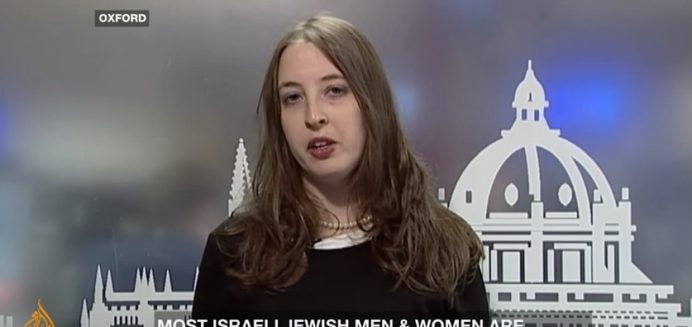This piece is from Fathom’s eBook The Life and Legacy of Yitzhak Rabin, which can be downloaded here.
The eBook also features essays and interviews by Reuven Rivlin, Uri Dromi, Luciana Berger, Omer Bar-Lev, Michael Herzog, Ronen Hoffman, Tzipi Livni, Einat Wilf, Sir Martin Gilbert and Shlomo Avineri.
Alan Johnson: Looking back on the life of Yitzhak Rabin, what stands out to you as his most outstanding contribution to the State of Israel?
Sara Hirschhorn: Rabin certainly had a long and illustrious career in civil service and military service. What stands out for me is his assertion that you don’t make peace with your friends, you make peace with your enemies. He was honest about the difficulties of the process and he gave both the people of Israel and the Palestinians an opportunity to reckon with each other – understanding that they had to go forward based on a very difficult history, but that there was a path to peace in the future.
Unfortunately, I think his most outstanding contribution, at least for my generation, was more in his death than in his life. He symbolised the hope and the understanding that peace could be within reach. Even when I visit his grave on Mount Herzl today I see young people, who might not even have been born during Rabin’s tenure, flocking to the site to light candles and to pray for peace – they really still see him as the symbol of what may have been.
Certainly he shaped my life. Rabin’s death was the ‘where were you when Kennedy was shot’ moment for my generation; he really inspired me both personally and professionally to be on the path that I am today. Lastly, his other contribution may have been to raise the alarm about the depths of the opposition within the Jewish-Zionist camp to the peace process and the difficult steps that would have to be taken.
AJ: What do you think was the significance of his assassination for the peace process itself? Obviously it continued; we went on to have Camp David and Annapolis but there’s a debate isn’t there: would the peace process have turned out differently if he had not been killed?
SH: I don’t like to indulge in this kind of counter-factual history. The truth is he was assassinated, the Oslo process fell apart. I was living in Israel at the time, as a teenager, when this was taking place and we’ve had 20 years of a sad and deadly history since then that we have to grapple with.
We need to think about the conditions and the characters that made peace possible at that moment in time in the mid-1990s. The peace process was far more than Rabin the character. It was a moment when coalition politics in Israel provided a domestic opening to allow the Oslo Accords to be passed in the Knesset; it was the end of the Cold War and there were other regional conditions which gave Palestinians the opportunity to pursue this course; and there was the kind of international leadership that could shepherd the process along. Rabin was at the centre of this context and he brought the will, stamina and credibility that no other Israeli leader – and perhaps no other Palestinian leader either – has possessed to move the process forward. In that sense he was really pivotal and we really don’t know what might have happened had he survived.
AJ: Do you think there’s a way back today to the kind of negotiated coexistence that Rabin talked about and what does that path look like to you, to make something of that legacy?
SH: I truly believe that, at the end of the day, while both sides certainly want to fulfil their national aspirations they also want peace and stability. Whenever I sit on a bus in central Jerusalem or I take the bus to Ramallah, I see mothers sitting with their children and I truly believe that each one of them wants a better life for their child and to not live in the fear of war.
The technical solutions to the core issues of the Israeli-Palestinian conflict that were part of the Oslo process remain in place, so as long as both sides continue to commit to a two-state framework, there’s not a lot of new thinking that needs to be done.
But it’s also a war of narrative: since Oslo, the ability for Israelis and Palestinians to see one another both physically and metaphorically has declined. The checkpoints and the separation barrier have literally segregated the two populations and there are very few zones in which there is actual human interaction. There’s also a deliberate desire on both sides to refuse to see each other’s humanity and to understand the challenges that each side faces and their desires to fulfil their own aspirations.
While these peer-to-peer programmes which used to exist during Oslo can’t bring peace alone, I think it is imperative for each side to recognise ‘the other’. Whether that’s their history, their national aspirations, their desires, their commonalities as well as their differences, it is really a must and bridging those gaps is essential to finding the road back to peace in the future.
This piece is from Fathom’s eBook The Life and Legacy of Yitzhak Rabin, which can be downloaded here.
The eBook also features essays and interviews by Reuven Rivlin, Uri Dromi, Luciana Berger, Omer Bar-Lev, Michael Herzog, Ronen Hoffman, Tzipi Livni, Einat Wilf, Sir Martin Gilbert and Shlomo Avineri.


































Comments are closed.